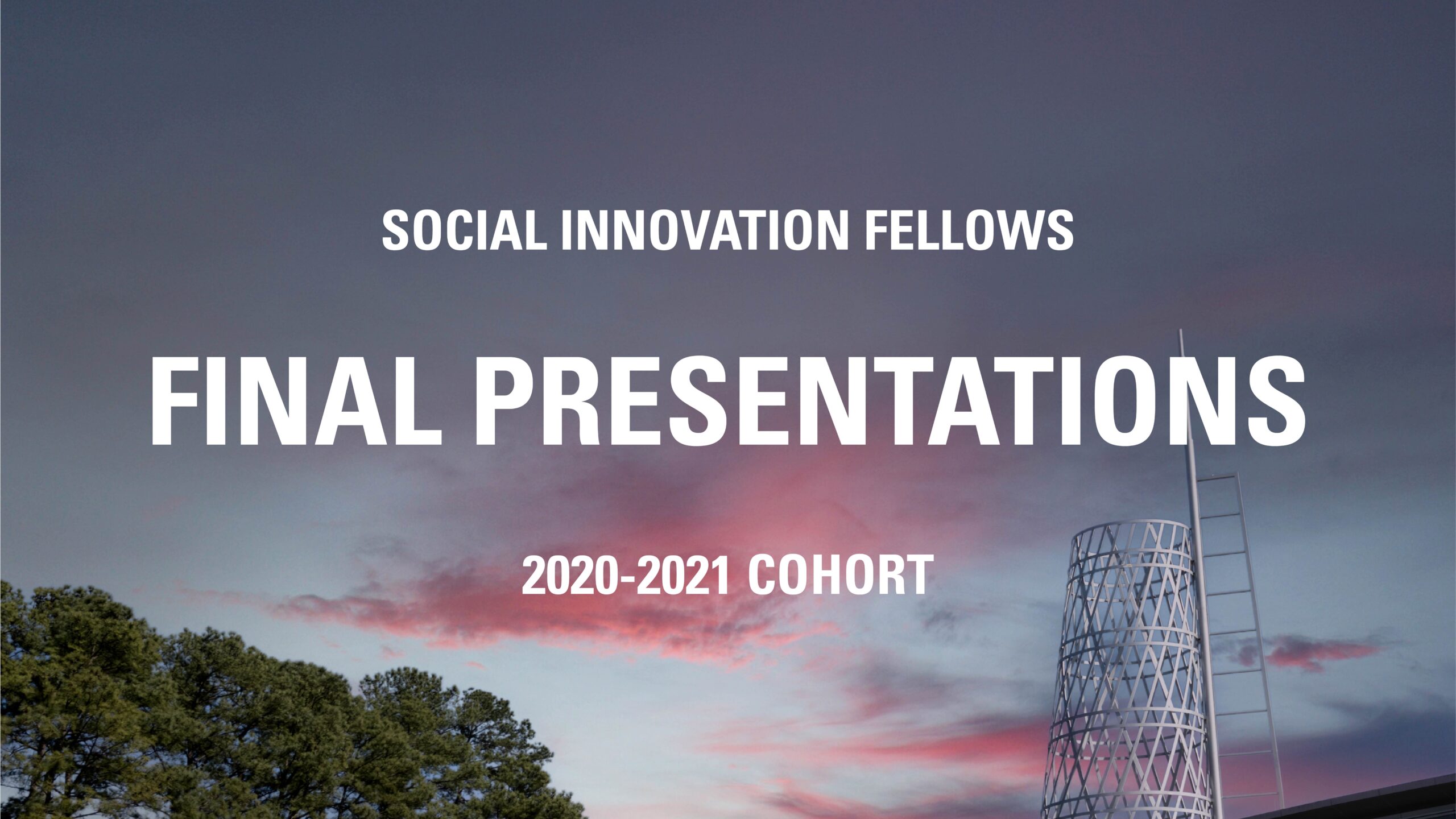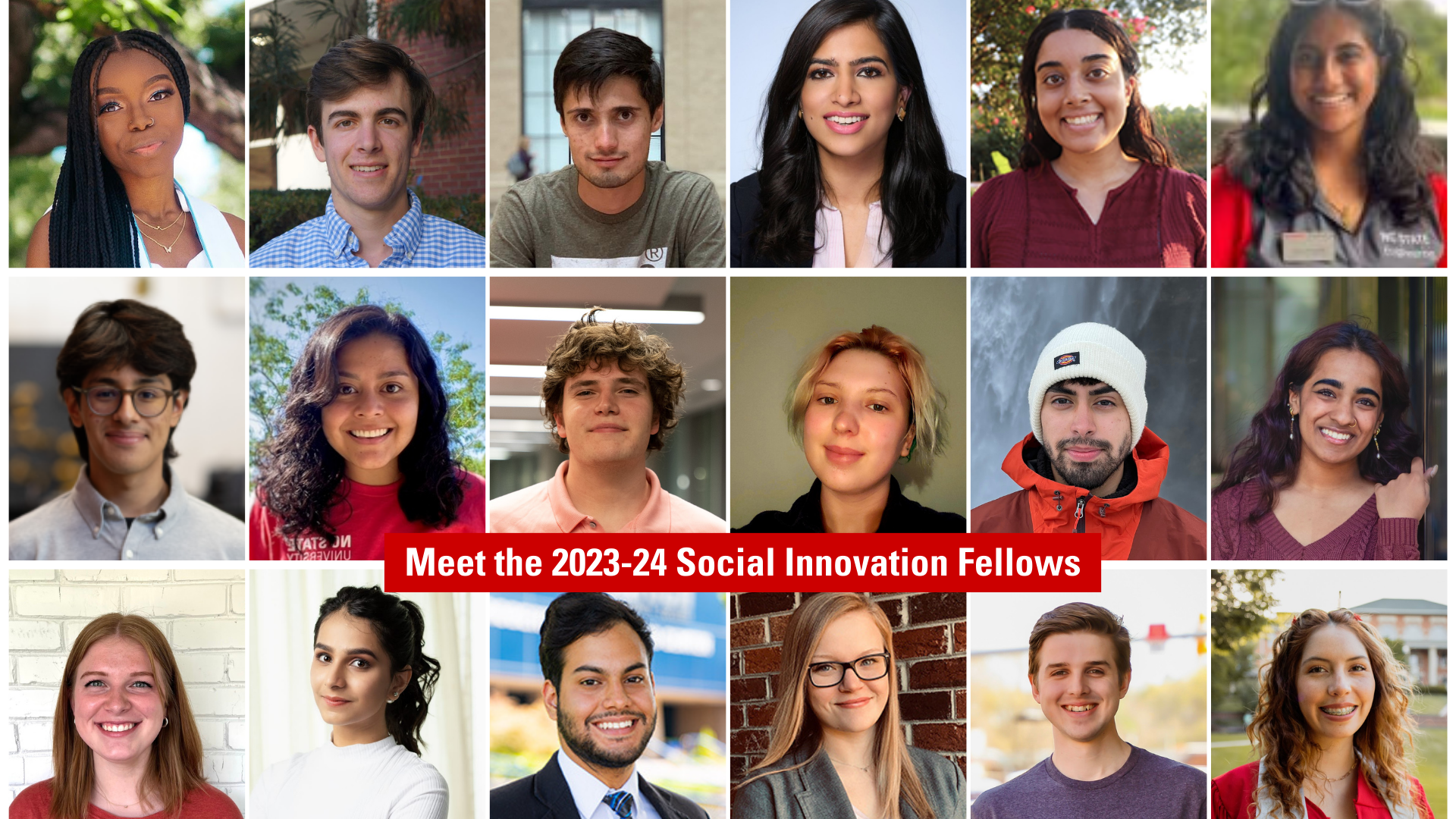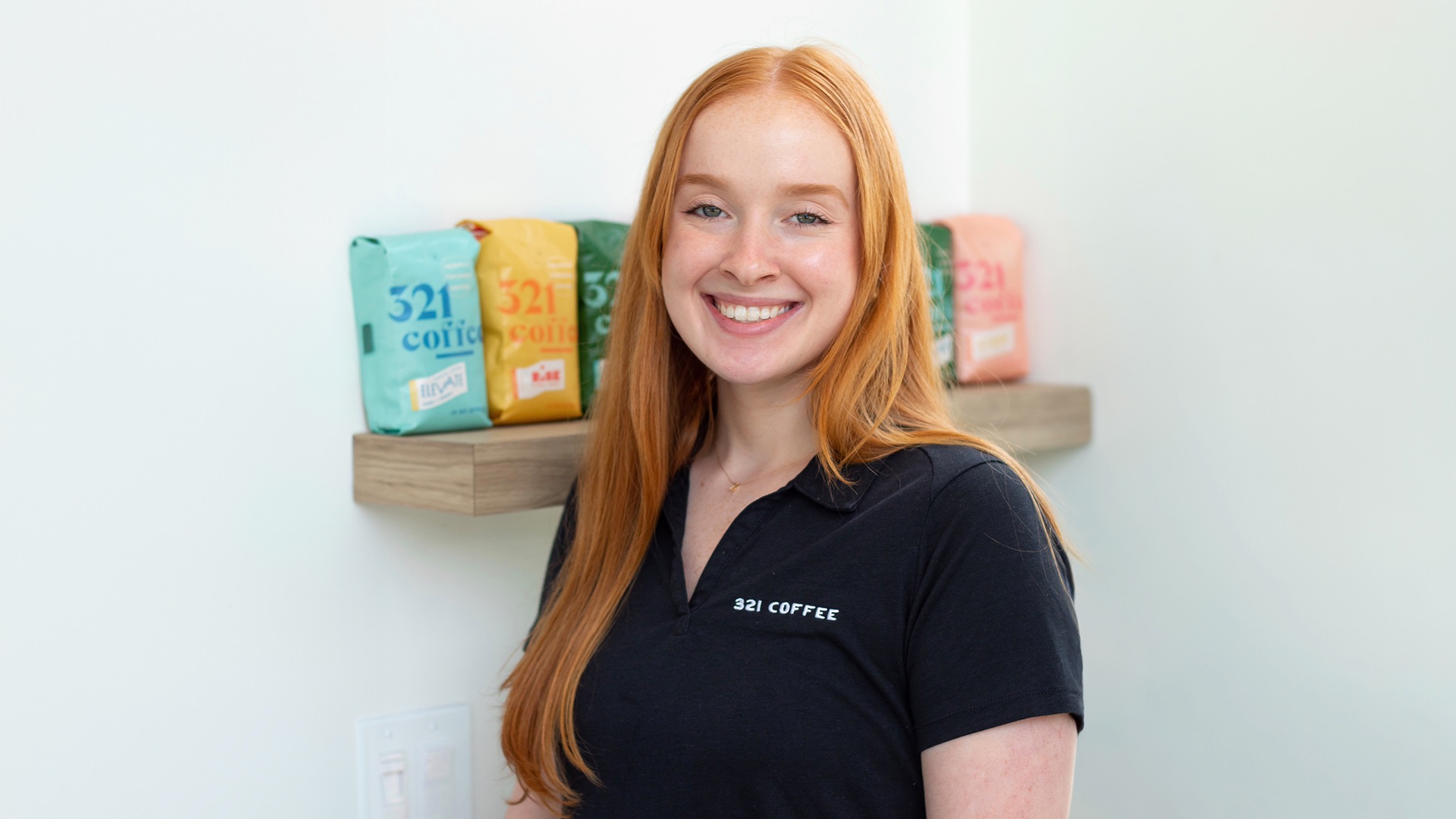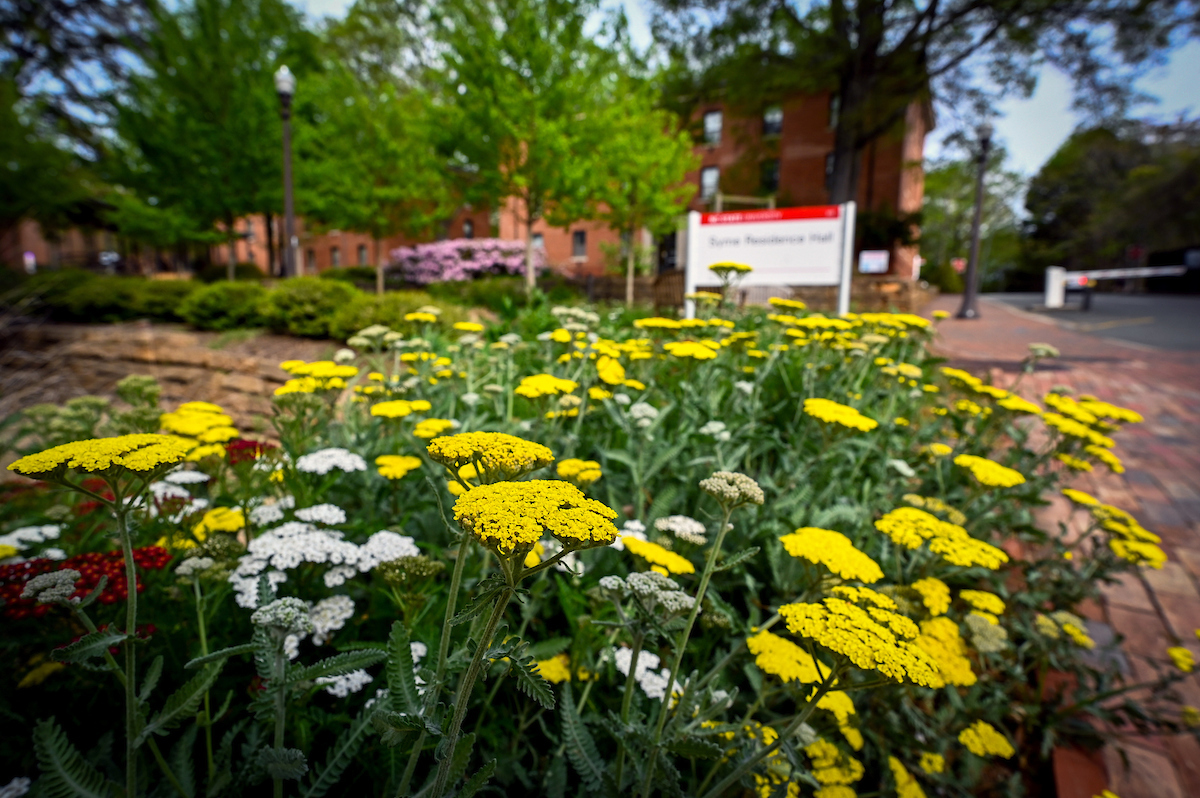Social Innovation Fellows 2020-21 Cohort Share Outcomes and Lessons Learned

The Social Innovation Fellows 2020-21 cohort wrapped up their year on May 5th, 2021 with final presentations featuring lessons learned and stories of personal growth and impact. The virtual event also featured remarks from Venture Partners, Team Mentors, program staff, NC State Provost Warwick Arden and Humanities and Social Sciences Dean Jeff Braden.
The evening began with a warm welcome from Program Director Elizabeth Benefield, with an emphasis on the resilience shown by the Fellows and acknowledgement of their commitment to learning the necessary skills required of a social innovator.
Provost Arden’s opening remarks commended the students on their strength in an unprecedented year of challenge and disruption. He highlighted how the Social Innovation Fellows’ program is a prime example of furthering the University’s goals of entrepreneurial thinking, innovative partnerships, and applied problem-solving. Lastly, Provost Arden emphasized how the learning outcomes of the Fellows will drive change and transform our future.
All We Are
The first presentation of the evening is Team All We Are (AWA) – a Raleigh-based nonprofit founded by Nathan Thomas, which provides clean, sustainable energy to Ugandan communities. The Fellows’ project focused on raising awareness and communicating All We Are’s impact in order to attract investments to provide more solar panels to Ugandan communities. While learning how to “fall in love with the problem,” Team All We Are created an impact report for investors and stakeholders that uses data visualization and storytelling to showcase AWA’s impact across Ugandan communities.
NC State Compost Facility
The Compost Team collaborated with their venture partner, the NC State Composting Facility, to tackle the problem of compost contamination. Their project consisted of research and outreach to multiple stakeholders ranging from faculty, students, and the community to holistically learn about the source of contamination. Their focus was on addressing behavior change in first-year students to empower them with the tools and knowledge necessary to correctly sort their waste. To do so, the Fellows have drafted a bill for the Student Government to review that will require mandatory compost training for all first-year students that will serve as an educational campaign to mitigate compost contamination.
NC Sea Grant
The NC Sea Grant Team set out to tackle the challenge of reducing waste entering marine ecosystems. Their discovery of the problem revealed the complexities of the sources of water pollution and they soon realized the importance of working with the community in order to make an impact. Their project focused on utilizing the community in the form of citizen science to broadly track the types of waste entering North Carolina’s waterways. Through creating an “NC State SIF” organization in the Marine Debris Tracker app, the Fellows have created a mechanism that allows all of us to take action in tracking waste and litter.
People-First Provisions
The People-First Provisions Team faced an enormous challenge as the COVID-19 pandemic disrupted the travel industry and had to shift from People-First Tourism (P1T) to People-First Provisions (P1P). P1P is a social enterprise started by NC State faculty member, Duarte Morais, that provides travelers with produce from local farmers with an easy-to-use platform. The Fellows created a marketing campaign and animated video to help address a communication gap between farmers and travelers that will better communicate P1P’s value proposition.
Episcopal Farmworker Ministry
The Episcopal Farmworker Ministry (EFWM) Team worked on communicating accurate and credible information regarding the COVID-19 vaccine to migrant farmworkers. They discovered a misconnection and mistrust towards vaccine communication and realized an opportunity to make an impact on the farmworkers by approaching this problem from a place of mutual respect, empathy, and inclusivity. Their final deliverable was creation of stickers and T-shirts with informational content on the vaccine that targets both older and younger generations of farmworkers. The intentional design and thoughtful attention to the detail of the stickers and T-shirts will be a useful tool in providing accurate information to farmworkers in the fields.
A Place at the Table
A Place at the Table is a pay-what-you-can cafe in the heart of downtown Raleigh, started by NC State alumna, Maggie Kane. The problem the Fellows set out to tackle was reducing food insecure students on NC State’s campus. They realized an awareness gap between students and A Place at the Table, and wanted to connect students with this off-campus resource. They set out on a marketing campaign that involved tabling events on campus and social media outreach in order to broaden student’s awareness.
Closing Remarks from Dean Jeff Braden
As the night comes to a close, Dean Jeff Braden congratulates the teams for a successful year, and highlights how the Social Innovation Fellows brings disciplines together to promote social good. This opportunity would not have been possible without the joint efforts of all our stakeholders and we are extremely grateful for your continued support.
Thank you to Team Mentors, Venture Partners, Senior Fellows, lab speakers, and the Social Innovation and Entrepreneurship strategic advisors for a successful year for the 2020-21 cohort. A special thank you to Ginger Sall, Seph Barnard, and the Kenan Institute for Engineering, Technology, and Science for your continuing support.
- Categories:


